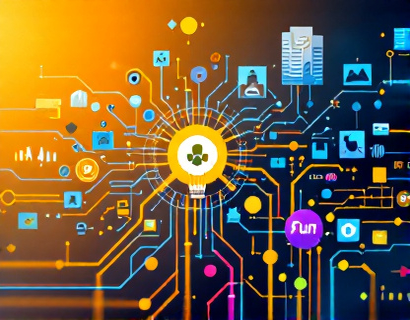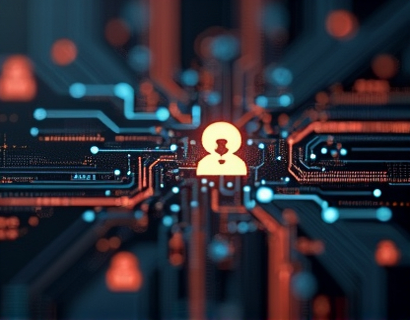Transforming Education with AI-Powered Chatbots: A Comprehensive Guide for Students, Families, and Educators
The integration of artificial intelligence in educational settings has opened new avenues for learning, making knowledge more accessible and personalized than ever before. Among these innovations, AI-powered educational chatbots stand out as a transformative tool, offering specialized insights tailored to the needs of students, families, and educators. This article delves into the capabilities and benefits of these chatbots, focusing on how they deliver industry-specific knowledge and services through verified content, ensuring a safe and enriching educational experience for all users.
Understanding AI-Powered Educational Chatbots
AI-powered educational chatbots are sophisticated software applications designed to simulate conversation through natural language processing and machine learning algorithms. These chatbots are programmed to understand and respond to user queries with relevant and accurate information, adapting to the user's level of understanding and learning pace. Unlike traditional Q&A systems, these chatbots can engage in multi-turn conversations, providing step-by-step explanations and detailed insights on various topics.
Specialized Insights for Students
For students, AI chatbots serve as personalized tutors, offering support outside the classroom. These chatbots can provide explanations on complex subjects, from basic math to advanced science concepts, tailored to the student's current knowledge level. By interacting with the chatbot, students can ask follow-up questions, receive instant feedback, and deepen their understanding of the material. This interactive learning approach not only reinforces concepts but also fosters a deeper interest in the subject matter.
Moreover, these chatbots can assist students in their research projects by providing credible sources and summarizing key points from academic papers. This capability is particularly beneficial for high school and college students who need to conduct thorough research for their assignments and essays. The chatbot's ability to filter and present information in an organized manner saves time and enhances the quality of the research process.
Support for Families
Families play a crucial role in a child's educational journey, and AI chatbots can be invaluable allies. For parents and guardians, these chatbots offer insights into their child's learning progress, suggesting activities and resources to support learning at home. They can answer common educational queries, provide tips on study habits, and offer advice on managing screen time and digital literacy. This support helps parents stay informed and involved in their child's education, fostering a collaborative learning environment.
Additionally, chatbots can facilitate communication between teachers and parents by summarizing class activities, homework assignments, and upcoming events. This streamlined communication ensures that parents are always up-to-date with their child's educational activities, allowing them to provide timely support and encouragement.
Resources for Educators
Educators benefit significantly from AI chatbots as well. These tools can assist teachers in lesson planning by suggesting engaging activities, multimedia resources, and interactive exercises tailored to the curriculum. Chatbots can also help in grading and providing immediate feedback on assignments, freeing up time for teachers to focus on more critical aspects of teaching, such as one-on-one student interactions and curriculum development.
Furthermore, chatbots can serve as a platform for professional development, offering educators access to the latest educational research, teaching methodologies, and industry trends. By staying informed through these chatbot interactions, teachers can enhance their teaching skills and adapt to the evolving educational landscape.
Ensuring Content Verification and Safety
A critical aspect of AI-powered educational chatbots is the assurance of content verification and safety. To maintain the integrity of the information provided, these chatbots are equipped with robust verification mechanisms. All content is cross-referenced with credible sources, including academic journals, government publications, and reputable educational institutions. This ensures that the information presented is accurate, up-to-date, and reliable.
For younger users, chatbots are designed with safety in mind. They feature child-friendly interfaces and content filters to prevent exposure to inappropriate material. Parental controls can be set to monitor and limit interactions, ensuring a secure and educational experience. Additionally, chatbots are programmed to handle sensitive topics with care, providing age-appropriate explanations and resources.
Enhancing Learning Through Personalization
One of the most significant advantages of AI chatbots in education is their ability to personalize learning experiences. Each user interacts with the chatbot based on their unique needs and learning style. The chatbot adapts its responses to the user's proficiency level, learning pace, and specific interests. This personalization not only makes learning more effective but also more enjoyable, as students are more likely to engage with content that resonates with their individual preferences.
For instance, a student struggling with a particular math concept can receive additional practice problems and explanatory videos tailored to their level of understanding. Similarly, a student interested in environmental science can explore related projects and resources that align with their passion, thereby deepening their engagement and motivation.
Promoting Collaborative Learning
AI chatbots can also foster a sense of community and collaboration among students. By connecting learners with similar interests or working on similar projects, chatbots can facilitate group discussions and collaborative tasks. This peer-to-peer learning environment encourages students to share knowledge, solve problems together, and develop essential social and communication skills.
Teachers can leverage chatbots to create virtual study groups, assign collaborative projects, and monitor group dynamics. This approach not only enhances the learning experience but also prepares students for the collaborative nature of the modern workforce.
Supporting Special Education Needs
AI-powered educational chatbots are particularly beneficial for students with special education needs. These chatbots can be customized to accommodate various learning disabilities, providing content in formats that are accessible and understandable to each student. For example, visual aids, simplified language, and step-by-step instructions can be incorporated to support students with cognitive or processing challenges.
Moreover, chatbots can offer emotional support and encouragement, creating a safe and supportive learning environment. By recognizing and responding to the emotional state of the user, chatbots can help reduce anxiety and build confidence in learners with special needs.
Conclusion
AI-powered educational chatbots represent a significant advancement in the field of education, offering a range of benefits for students, families, and educators. By providing specialized insights, verified content, and personalized learning experiences, these chatbots enhance the educational journey for all users. As technology continues to evolve, the potential for AI in education is vast, promising a future where learning is more accessible, engaging, and effective.











































